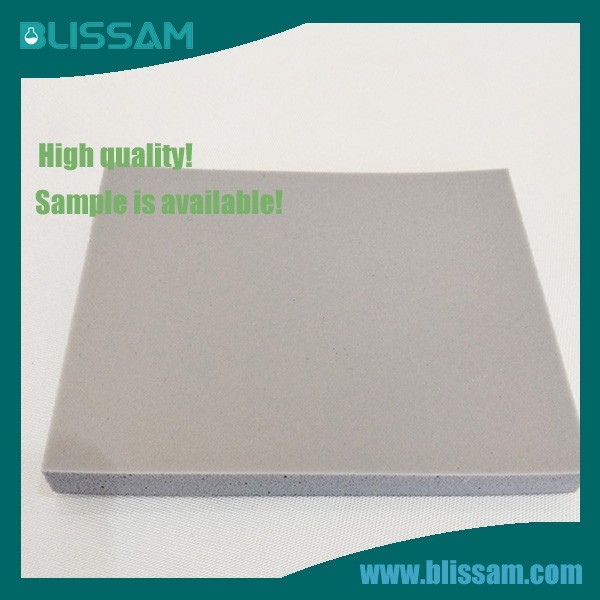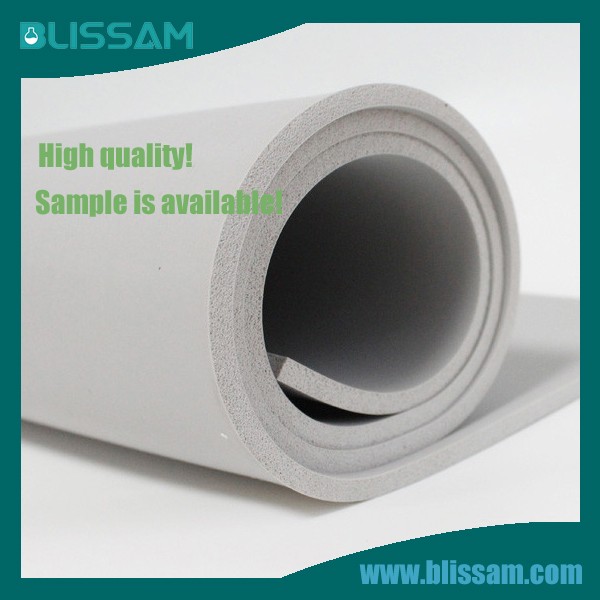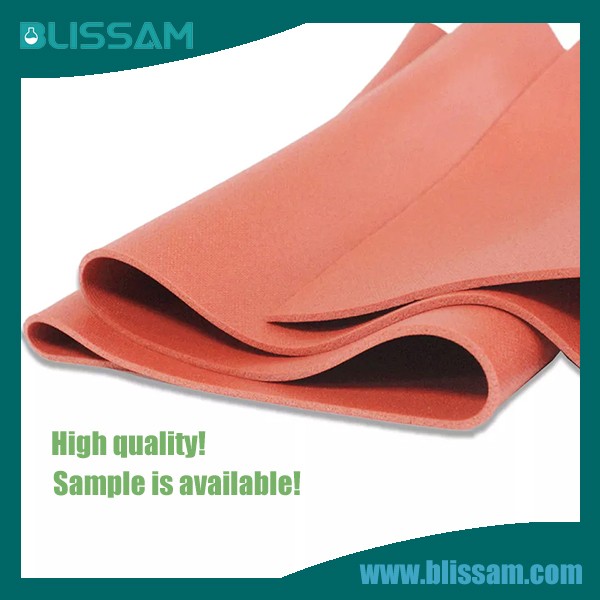Silicone foam is a versatile material that is widely used across industries for its unique properties, including excellent heat resistance, durability, and compressibility. It offers a wide range of applications, from sealing and insulation in automotive and electronics to cushioning and vibration damping in industrial machinery. As a leading provider of silicone-based solutions, BLISSAM offers high-quality silicone foam products designed to meet the evolving demands of modern manufacturing and industrial applications. This guide will delve into the various types, benefits, and uses of silicone foam, providing insight into how it is revolutionizing numerous sectors. We will also touch on recent industry news highlighting the rising demand for advanced silicone materials.
Silicone foam is a lightweight, flexible material made by incorporating a foaming agent into silicone. This results in a porous, open-cell or closed-cell structure, which offers a unique combination of physical and chemical properties. The foam can be produced in varying densities and thicknesses to suit specific applications, ranging from soft cushioning materials to dense sealing solutions.

Silicone foam stands out due to its impressive set of properties, making it suitable for various critical applications. Some of these properties include:
High Temperature Resistance:Silicone foam can withstand extreme temperatures, ranging from -60°C to 250°C (-76°F to 482°F), making it ideal for environments exposed to high heat, such as automotive engines and electronic devices.
Compression Set Resistance:The foam maintains its shape and cushioning properties even after prolonged compression, making it a reliable material for gaskets, seals, and cushioning applications.
Flame Retardancy:Many silicone foams are inherently flame retardant, meeting various international safety standards for fire resistance. This property is crucial for applications in aerospace, transportation, and construction, where fire safety is a top priority.
Excellent Sealing and Insulation:The closed-cell structure of some silicone foams provides effective sealing against water, dust, and air, while the open-cell versions offer good acoustic and thermal insulation properties.
Chemical and UV Resistance:Silicone foam is resistant to chemicals, oils, and UV radiation, ensuring long-lasting performance in outdoor and industrial settings.
Non-toxic and Safe:Silicone foam is non-toxic, hypoallergenic, and safe for use in medical and food-grade applications, adding to its versatility.
Silicone foam is available in different forms, each suited for specific applications based on its structure and properties. The main types include:
Closed-cell silicone foam is composed of sealed cells that do not allow air, water, or other substances to pass through. This type of foam is ideal for creating gaskets and seals, providing excellent resistance to water, dust, and air leakage. It is often used in applications where environmental sealing is critical, such as in automotive and electronics.
Open-cell silicone foam has interconnected cells that allow air and water to pass through. This structure gives it good acoustic and thermal insulation properties. Open-cell silicone foam is commonly used in soundproofing applications, cushioning, and vibration damping.
Silicone sponge is a lightweight, compressible material with properties similar to silicone foam. It is often used for gasketing, cushioning, and insulation in high-temperature environments. Silicone sponge offers good resistance to compression set, making it an excellent choice for repeated compression applications.

Thanks to its versatility and unique properties, silicone foam is used in a wide variety of industries. Here are some of the key applications:
Silicone foam is used extensively in the automotive industry for sealing, insulation, and vibration damping. It is commonly applied in gaskets for door seals, engine compartments, and HVAC systems. The foam’s ability to withstand high temperatures and resist chemical exposure makes it an ideal material for these demanding applications.
In the electronics industry, silicone foam is used as an insulating material to protect sensitive components from dust, moisture, and heat. It is often used to seal enclosures, prevent ingress of dust and water, and provide thermal insulation in electronic devices.
Silicone foam is used in industrial settings for gaskets, seals, and cushioning to protect machinery and equipment from damage due to vibration or impact. It is also employed in HVAC systems to provide insulation and prevent air leakage.
Silicone foam’s non-toxic, hypoallergenic, and temperature-resistant properties make it suitable for use in medical devices, food processing equipment, and seals for food containers.
The flame-retardant properties of silicone foam make it a preferred choice for the aerospace and defense industries. It is used in aircraft interiors, fuel tank seals, and other critical components where fire resistance and high-temperature performance are essential.
The global silicone foam market is witnessing significant growth due to increasing demand from industries such as automotive, electronics, and healthcare. According to a recent report by Markets and Markets, the silicone foam market is expected to grow at a compound annual growth rate (CAGR) of 6.1% between 2021 and 2026. This growth is driven by the rising adoption of silicone foams in electric vehicles (EVs), where thermal management and sealing solutions are critical.
Additionally, the push for sustainability and environmental responsibility is encouraging manufacturers to develop silicone foams with reduced volatile organic compound (VOC) emissions and improved recyclability. Companies like BLISSAM are investing in research and development to create innovative silicone foam solutions that meet the evolving needs of their customers and contribute to a more sustainable future.

BLISSAM is a trusted supplier of high-quality silicone foam products tailored to meet the specific requirements of various industries. Here’s why our silicone foam stands out:
Superior Quality: Our products are manufactured using the highest-quality materials and advanced production techniques, ensuring consistent performance and reliability.
Customization Options: We offer a range of densities, thicknesses, and formulations to suit different applications, from high-temperature sealing to acoustic insulation.
Commitment to Innovation: At BLISSAM, we continuously invest in research and development to deliver innovative silicone solutions that align with industry trends and regulatory standards.
Silicone foam is a versatile and high-performance material with a wide range of applications across multiple industries. Its unique properties, such as high-temperature resistance, chemical stability, and excellent sealing capabilities, make it an ideal choice for demanding environments. As the demand for advanced silicone materials continues to grow, BLISSAM is committed to providing top-quality silicone foam products that meet the evolving needs of our customers. Whether you need a reliable sealing solution or a lightweight cushioning material, BLISSAM’s silicone foam is the answer.
Contact:
Phone: +86-15957191858
E-mail: info@blissam.com
Whatsapp:+8615957191858
Add: A647, No. 9, Xiyuan Road, Xihu District, Hangzhou, Zhejiang, China
We chat
